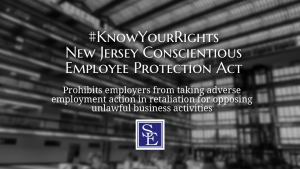The New Jersey Transgender Equality Task Force issued its report and recommendations on November 20, 2019 to address discrimination against transgender individuals of New Jersey. The New Jersey Transgender Equality Task Force, was established by Governor Murphy and its Senate and Assembly sponsors in July, 2018, convened in March, 2019 and has worked for the past six month studying a wide ranging issues of discrimination facing transgender persons, including health care, long term care, education, higher education, housing, employment and criminal justice. New Jersey’s creation of the Transgender Equality Task Force is the first in the nation.
 The task force was chaired by Aaron Potenza who is the Policy and Program Manager for the New Jersey Coalition Against Sexual Assault. Mr. Potenza was joined by representatives from nine state agencies along with other experts, lawyers and health care professionals. The task force’s directive was to assess the legal and societal barriers to equality for transgender individuals in the State and to make recommendations to ensure equality and improve the lives of transgender individuals. The task force’s report, entitled “Addressing Discrimination Against Transgender New Jerseyans”, includes various recommendations to address LGBTQ discrimination, which include the following:
The task force was chaired by Aaron Potenza who is the Policy and Program Manager for the New Jersey Coalition Against Sexual Assault. Mr. Potenza was joined by representatives from nine state agencies along with other experts, lawyers and health care professionals. The task force’s directive was to assess the legal and societal barriers to equality for transgender individuals in the State and to make recommendations to ensure equality and improve the lives of transgender individuals. The task force’s report, entitled “Addressing Discrimination Against Transgender New Jerseyans”, includes various recommendations to address LGBTQ discrimination, which include the following:
- the Governor’s Office announcing a campaign to increase sexual orientation and gender identity data collection throughout New Jersey state agencies;
 New Jersey Employment Lawyers Blog
New Jersey Employment Lawyers Blog


